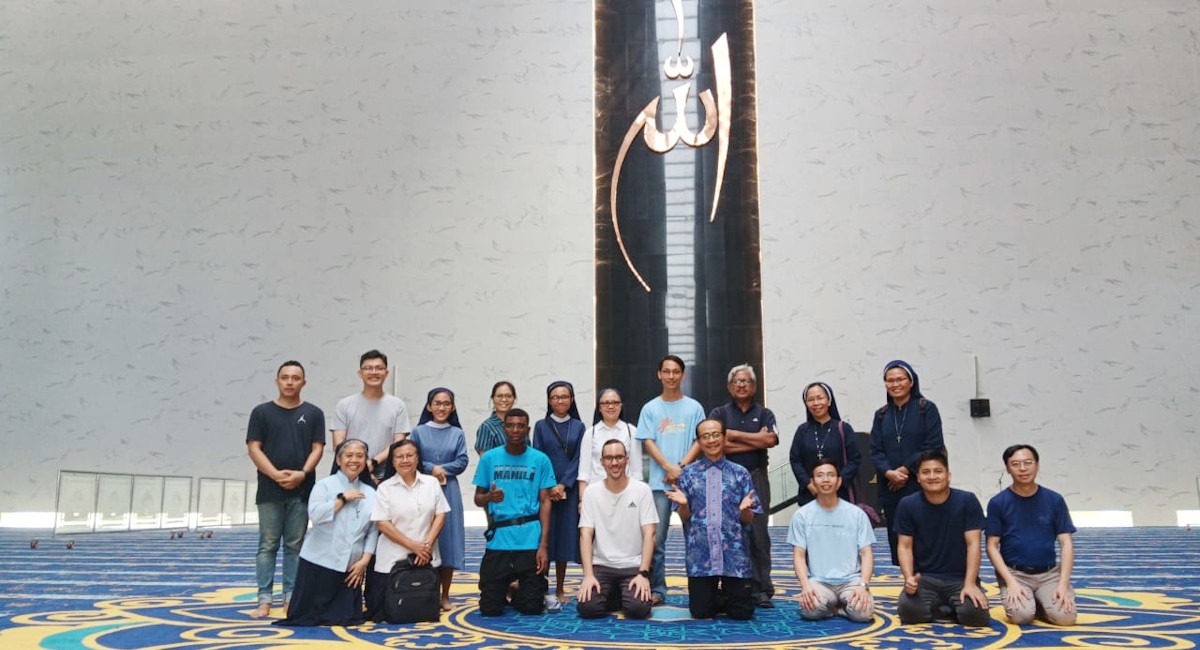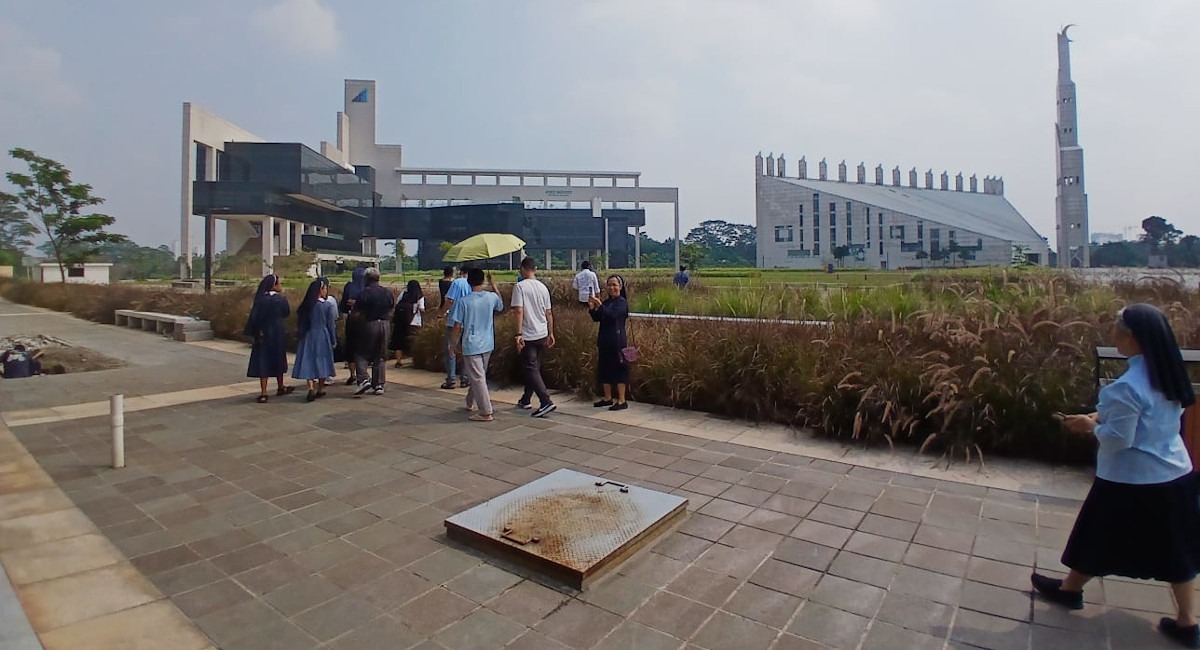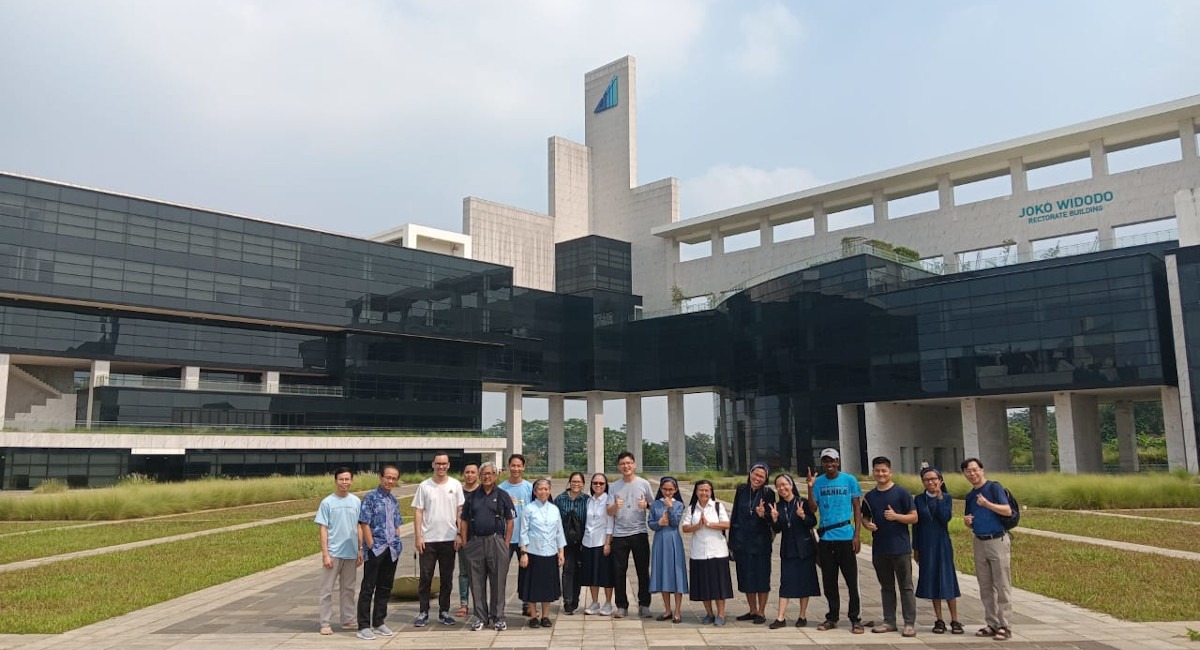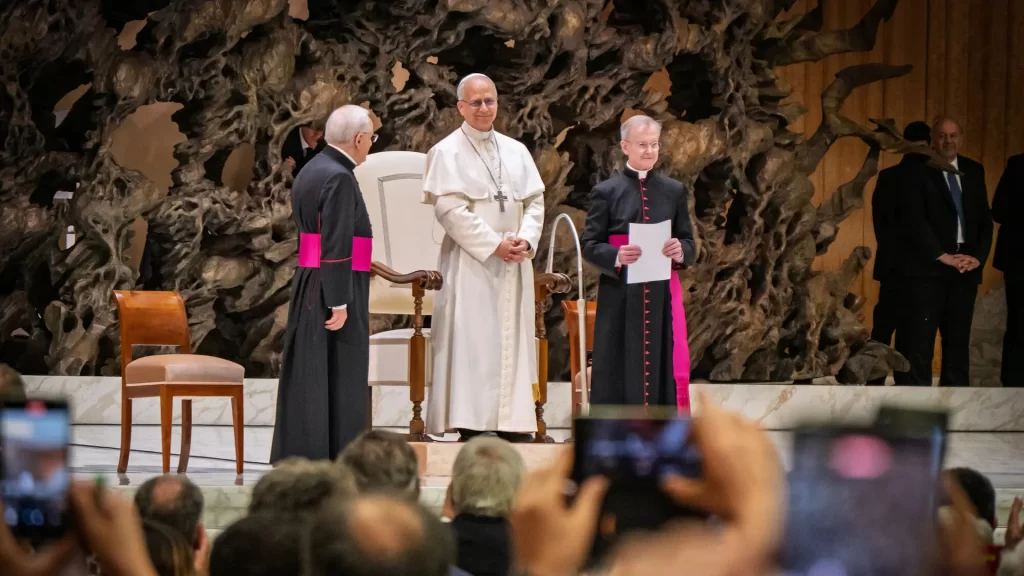
APTEP 2024 is taking place from 4 to 24 June in three cities in Indonesia: Jakarta, Salatiga, and Yogyakarta. Fr Greg Soetomo SJ and Dr Renato Oliveros, a Christian scholar of Islam, are guiding and mentoring 21 participants from nine countries, namely, Brazil, China, Burundi, Angola, Indonesia, Philippines, Vietnam, Myanmar, and Singapore. The group comprises priests, scholastics, sisters, and laypeople.
Prior to meeting in Indonesia, the participants engaged in Zoom sessions not only to discuss practical matters about our travel but also to foster a deeper understanding of the reading course. We were encouraged to explore the dynamic relationship between Islam and Christianity through two books by Hugh Goddard: “Christians and Muslims: From Double Standards to Mutual Understanding” and “A History of Christian–Muslim Relations”. Each of us prepared a presentation on a chapter from the book and an article based on the readings, bringing our insights to the International Islamic University of Indonesia in Jakarta, where they were refined through conversations and lectures with esteemed Muslim scholars during the first week of our programme.
The sessions in our opening week focused on the Dialogue of Life and Theological Exchanges. We engaged in extensive readings, met university students, and discussed with Muslim scholars. The International Islamic University of Indonesia supports foreigners interested in learning about Islam. The students and faculty come from various countries, and English is used as the language of instruction. The university has around 400 students across four faculties: Education, Political Science, Economics, and Islamic Studies. Interactions with master’s and doctoral-level scholars revealed many aspects of Islam rarely shown in mainstream media.
For example, Brazilian participant Carlos was struck by an interesting conversation with Mahmudd, a political science student from Egypt, during a walk from the dormitory to the classroom. “I was impressed by the hospitality of the international students here. Mahmudd was interested in our programme and where we were from. He shared that, given his religious and cultural context, he knows very little about Christianity and believes that APTEP offers a rich opportunity for both religious traditions to understand each other better.”

The conducive campus environment facilitated learning. In the mornings, we delved into readings with explanations from Fr Soetomo and Dr Oliveros. Afternoons were spent attending lectures from Muslim scholars on various dimensions of Islam, including doctrinal, cultural, and civilizational aspects. For example, Dr Farid Saenong explained interfaith theology from a Muslim perspective, Syafiq Hasyim discussed “Moderate Islam in Indonesia,” Zezen Zaenal Mutaqin talked about “Contemporary Issues in Islam,” Aan Suryana spoke on “Religious Radicalism among Students in Indonesia,” and Zacky Umam shared a historical perspective on “Islamic Christianity”.
These lectures and discussions enriched our understanding of Islam as much broader than just basic theological teachings and scriptures, highlighting its cultural and civilizational dimensions. We were pleased to discuss the ups and downs of Christian-Muslim interactions over the centuries. We became more aware of how the core beliefs, values, and spiritual practices of Islam relate to (and differ from) Christian traditions. One simple yet profound takeaway was the realisation that Islam cannot be generalised into a single entity. Just like Christianity, which has various denominations, Islam is a religious community with diverse traditions.
Gerald Francis Kong, a participant from Singapore, found Dr Saenong’s discussion on the theology of interfaith “very insightful and engaging, with much time for dialogue and a better understanding of contentious issues”.

After a week at the university, we were grateful and happy for the new perspective and connections we made. Learning from Islam in Indonesia emphasised the beauty and diversity of each religion’s worship, culture, teachings, and rules. The idea of “Bhinneka Tunggal Ika” (unity in diversity) is beautiful but requires ongoing effort and struggle, as emphasised by our speakers.
Since the founding of the Republic of Indonesia, intellectuals and founding fathers have fought for the principles of Pancasila. The wording of the first principle, initially “Belief in the One and Only God with the obligation to follow Islamic law for its adherents,” has been changed to “Belief in the One and Only God” to acknowledge Indonesia’s diverse religions and embrace the presence of Islam, Catholicism, Protestantism, Buddhism, Hinduism, and Confucianism.
We spent our weekend at the university exploring Jakarta and tasting Indonesian culture, such as soto Betawi, goat satay, sambal, kue cucur, and more. We also visited Jesuit scholastics from Pakistan and Myanmar who are studying philosophy at Driyarkara School of Philosophy and Xaverian missionaries. We did not forget to visit iconic places that preserve the memory of harmony, like Taman Mini Indonesia Indah, the Catholic Cathedral, Istiqlal Mosque, and the old city of Batavia. We concluded with a Eucharist and dinner with the Jesuits’ guests and family.
Although we had only been together for a week, we felt a strong sense of family. “New knowledge, new experience, new friends” could be the title of this journey. “We are looking forward to collecting loads of beautiful photos,” said Fr Praia, a participant from Angola, who is eager for the next two weeks of our experience. Yes, we look forward to the surprises of the second week in Salatiga, one of the most tolerant cities in Indonesia.







